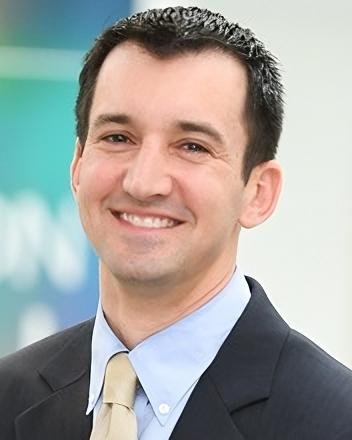
Discover the dynamic world of health law through an illuminating interview with Seton Hall Law's own Associate Professor Jacob T. Elberg, who also serves as the Faculty Director of the Center for Health & Pharmaceutical Law. In this conversation, Professor Elberg offers valuable insights for aspiring health law enthusiasts. From diverse career opportunities in health law to the significance of networking and recommended government agencies, Professor Elberg provides a roadmap for students seeking to enter this multifaceted legal field.

Tell us about your career path. How did you know you wanted to go into health law?
After a clerkship I began working at a litigation boutique where I was focused on both civil litigation and white-collar defense, including government investigations. My focus on health law was a combination of my interest and the work coming into the firm at the time. From the start, I enjoyed working on cases involving health care because of the impact health care has on all of us and the challenging factual and legal issues in the area.
What kinds of career opportunities can a student expect in the health law area?
There are a wide range of possible career paths involving health law. While my focus was litigation and government enforcement, many health lawyers do work far removed from the courtroom, whether advising and supporting clients on health care transactions, guiding clients through regulatory challenges, or working on health policy.
If a student is interested in health law, how do they find jobs/internships? Should a student work for a company, a firm, or both?
There’s no one right path for a student interested in health law. Working for a law firm with expertise in health law can be a great place to start, but so can working for a government agency or in-house at a health care entity.
Are there government agencies you would recommend to work for if interested in health law?
Seton Hall Law alums interested in health law have found success at a wide range of government agencies including HHS - ; OCIG, the FDA, and the Attorney General’s Office, including the Professional Board Prosecutions Section, to name just a few.
What are the most important qualifications/attributes a student should have to secure a job/internship in health law? Does a student need to have a science/medical background?
Students don’t need to have a science/medical background for most areas of health law (though there are some for which it can be a big plus!). Like most areas of legal practice, things like good judgment, interpersonal and writing skills are important.
What SHU Law classes should a student take if they are interested in health law? Should a student pursue the concentration?
It’s not necessary for a student to pursue the health law concentration if they are interested in a career in health law, but taking health law courses can be a great opportunity for students to learn about different areas of health law (and with them, different career possibilities), both to figure out their interest and begin developing expertise. The concentration is designed to both give students exposure to a wide range of health care topics and give them the scheduling flexibility to focus in on areas for which they have a particular interest.
How important is networking in breaking into this field of law? Any networking opportunities that you would recommend? Are there any organizations that a student interested in health law should join, either in school or outside of school?
As with other areas of the law, networking can be important both for learning more about the field and for identifying employment opportunities. Because “health law” includes so many different career paths, I encourage students to network to learn more about what people are doing. And in doing so, they’ll be making contacts that may lead to a future job. I definitely encourage students to get involved with the Health Law Forum - ; a terrific and very active student-run group at Seton Hall that connects health law-interested students with each other and with practicing attorneys. There are also plenty of organizations students can become involved with outside of school, including the American Health Law Association (AHLA) and the NJ State Bar Association’s Health Law Section.
OCS maintains a wide range of resources on Symplicity, which has current job postings, access to our recruiting programs, career tools such as our resume and cover letter guide, and more.